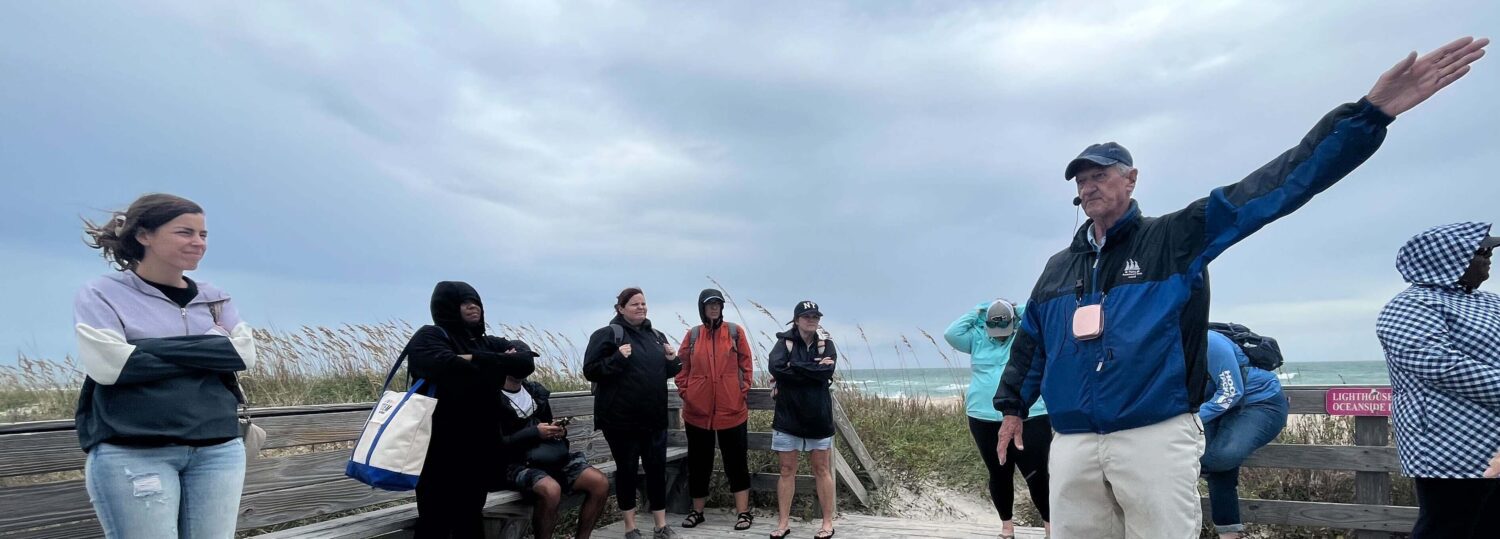RALEIGH, N.C.⸺On an overcast afternoon last December, 18 K-12 educators from eastern North Carolina and two pre-service undergrads from N.C. State University’s College of Education gathered outside the Walnut Creek Wetland Center to build a model of a climate-resilient city using cardboard, egg cartons and other recyclable materials.
This exercise marked the conclusion of a semester-long professional development institute centered on place-based learning. The Mountains to Sea Scholars spent the semester learning from experts in environmental and climate sciences to address the driving question for the term: “What does a community need to be resilient to the effects of climate change?”
Educators Examine Climate Resiliency Across NC
Mountains to Sea is an initiative by the Kenan Fellows Program for Teacher Leadership. The institutes provide a select group of educators with immersive professional learning experiences spanning North Carolina’s diverse climates and ecosystems from its mountains to the coast. So far, 80 teachers have completed the institutes. Each institute provides an in-depth look at a different topic in K-12 environmental education. Previous institutes have covered workshops on water quality and environmental justice.
Led by representatives from agencies participating in this institute including the North Carolina Coastal Federation, the U.S. Environmental Protection Agency (U.S. EPA) Office of Research & Development, the North Carolina State Climate Office, the Kenan Institute for Engineering, Technology & Science Climate Leaders Program, NC Energy Literacy Fellows, and Constructive Learning Design, the 2023 institute covered a range of topics from wildfires to coastal erosion. Field trips featured visits to the Cape Lookout National Seashore, Jockey’s Ridge in the Outer Banks, and the Walnut Creek Wetland Center in the Piedmont.
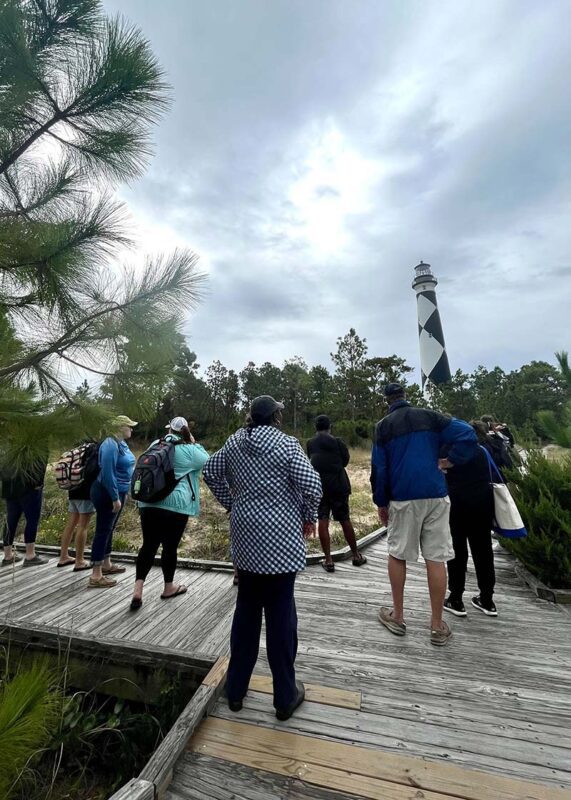
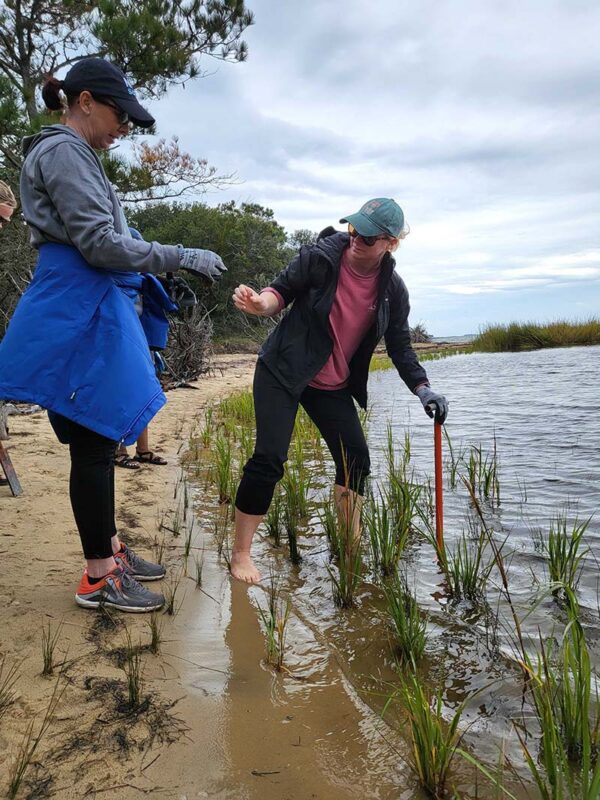
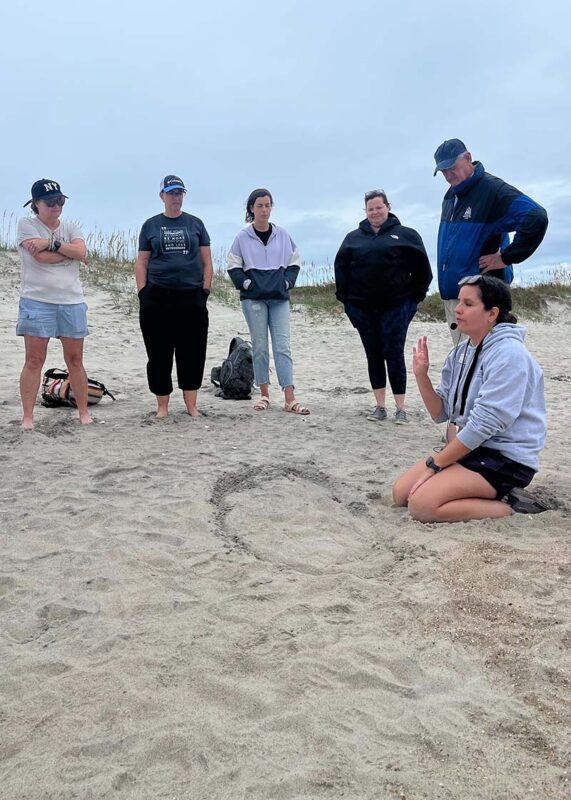
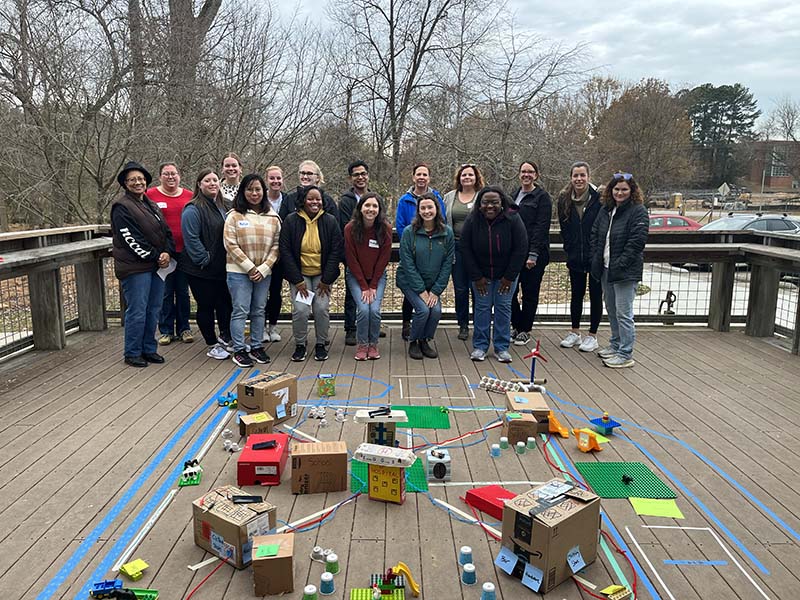
Lindsey Stalls, a STEM coordinator with Pitt County Schools and a Kenan Fellow alum, highlighted the significance of this hands-on learning approach. “I enjoyed learning in the same way our students approach STEM challenges and project-based learning,” Stalls stated. She now aims to introduce similar experiences into her school faculty meetings to foster continual growth among teachers.
Building Community Partnerships to Explore Place-Based Learning
Supported by a grant from the N.C. Science, Mathematics, and Technology Center, the fall 2023 Mountains to Sea semester featured panel discussions with environmental science and conservation experts and engaging in-person experiences including nature hikes and museum tours. Throughout the program, the 20 Mountains to Sea Scholars examined local climate resilience practices in North Carolina through virtual and in-person sessions.
For Stalls, a key takeaway was realizing that any environmental science topic in education can be examined through a statewide lens. “It was impactful to study climate change and resilience and see its implications across North Carolina,” she stated. This experience also gave her networking opportunities and resources to enhance her teaching practice.
Reflecting on the collaboration, Rachel Bisesi, the coastal education coordinator at the North Carolina Coastal Federation, expressed gratitude for the opportunity to connect with educators. She noted that programs like Mountains to Sea enrich student learning by connecting teachers with local projects and research in North Carolina.
Bringing the Mountains to Sea Scholars to the coast allowed the federation to showcase firsthand examples of landscapes and nature-based climate change solutions.
“When teachers have access to experiences which highlight what is happening in our coastal environments, it provides opportunities for collaboration amongst coastal practitioners and educators, and helps to bolster coastal science and resiliency connections in the classroom.”
Rachel Bisesi, NC Coastal Federation
In Raleigh, representatives from the U.S. EPA including Louie Rivers, Ph.D., Chris Weaver, Ph.D., Rebecca Dodder, Ph.D., and Jordan West, Ph.D., led a panel discussion on their research for the Fifth National Climate Assessment (NCA5), a government report on the effects of climate change and strategies for climate resilience. During the panel discussion, the authors highlighted the local implications of their research and contributions to the report.
EPA research outreach and communications specialist Jenna Hartley explained that the collaboration between EPA and Mountains to Sea stemmed from the excitement around the release of the NCA5 in November 2023. She noted that around 30 authors from the EPA contributed to the state-of-the-science NCA5 report.
Hartley emphasized, “We focused on aligning this event to the Mountains to the Sea program goals by incorporating a strong focus on place-based education. The EPA panelists that were selected to join the panel discussion explicitly spoke about their topic areas and the implications of climate change throughout North Carolina in the Southeast.”
She further noted that EPA staff members who participated in the panel discussion shared positive remarks about their direct interaction with K-12 educators.
After the event, one EPA leader who was in attendance remarked, “My optimism about the future derives from what I witness at events like today.”
As a result, Hartley stated, “There is more enthusiasm for working with teachers whenever possible and better supporting their efforts to teach about climate in their classrooms.”
